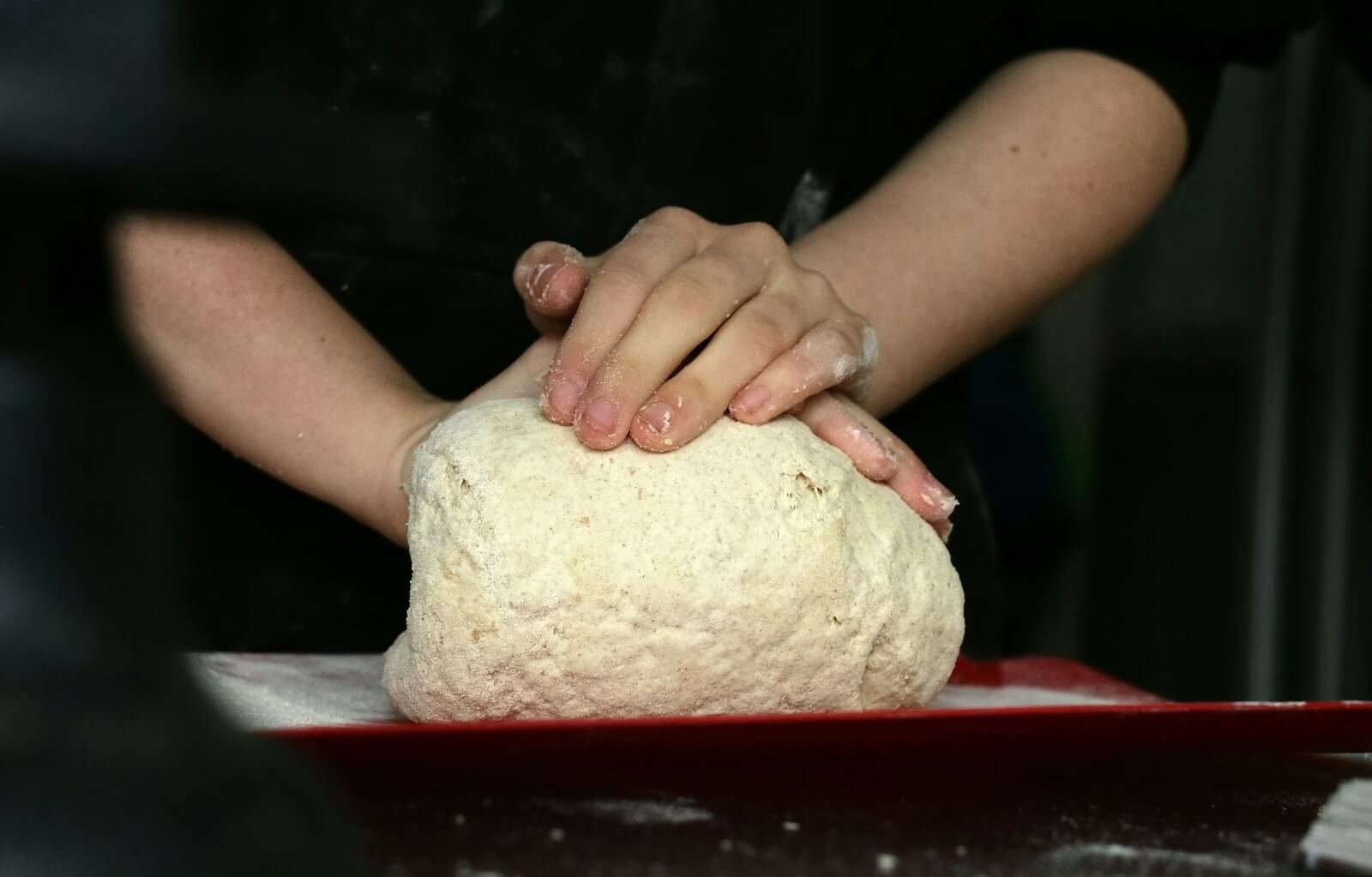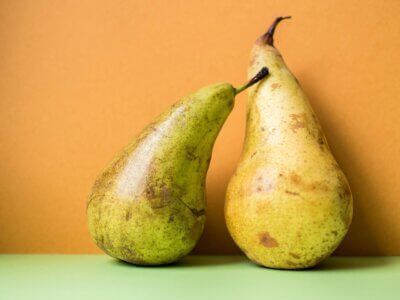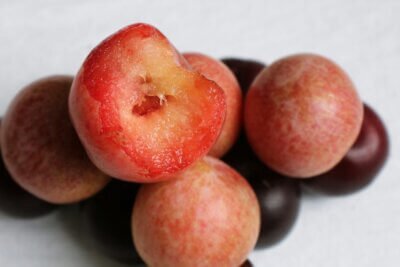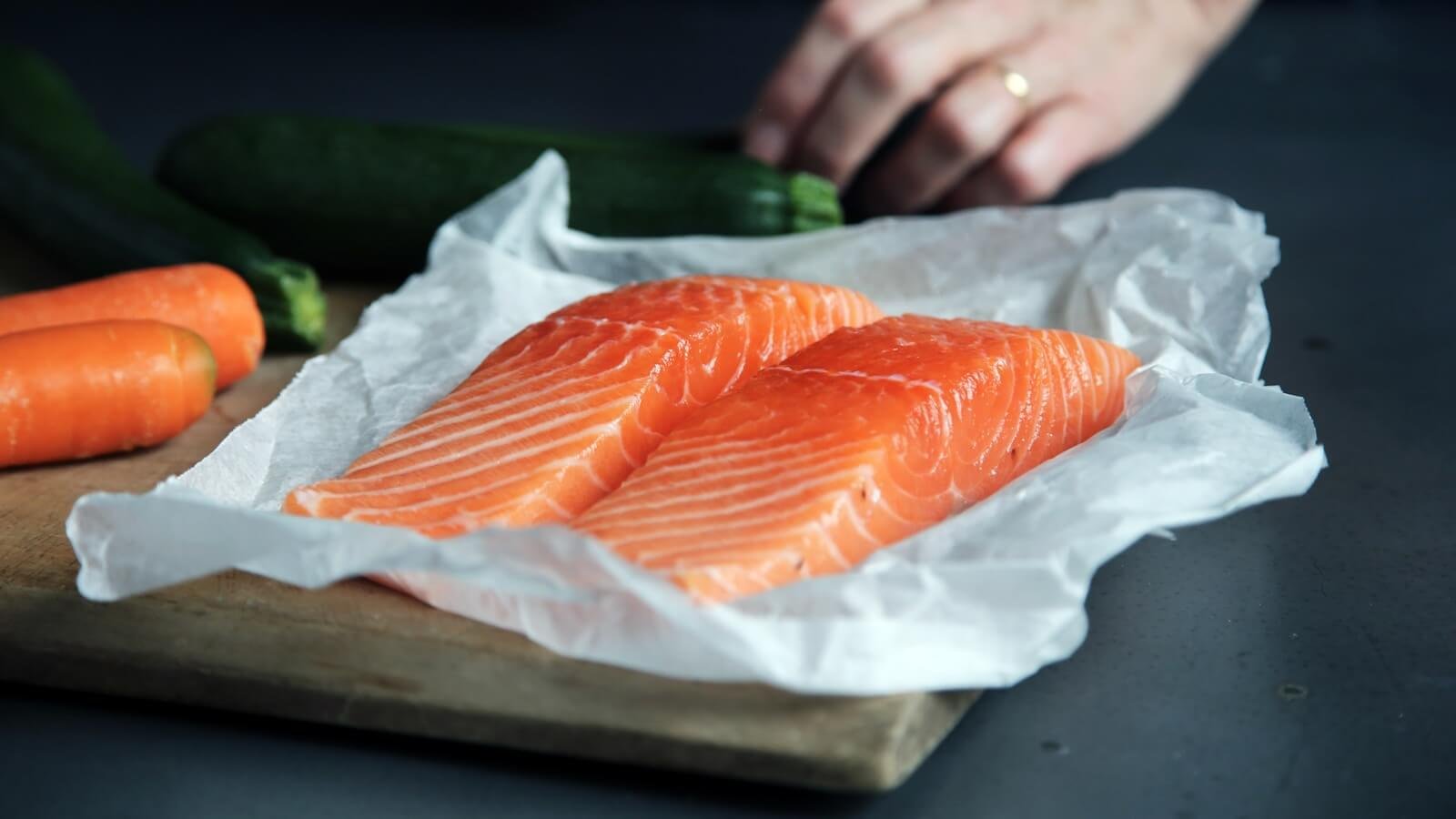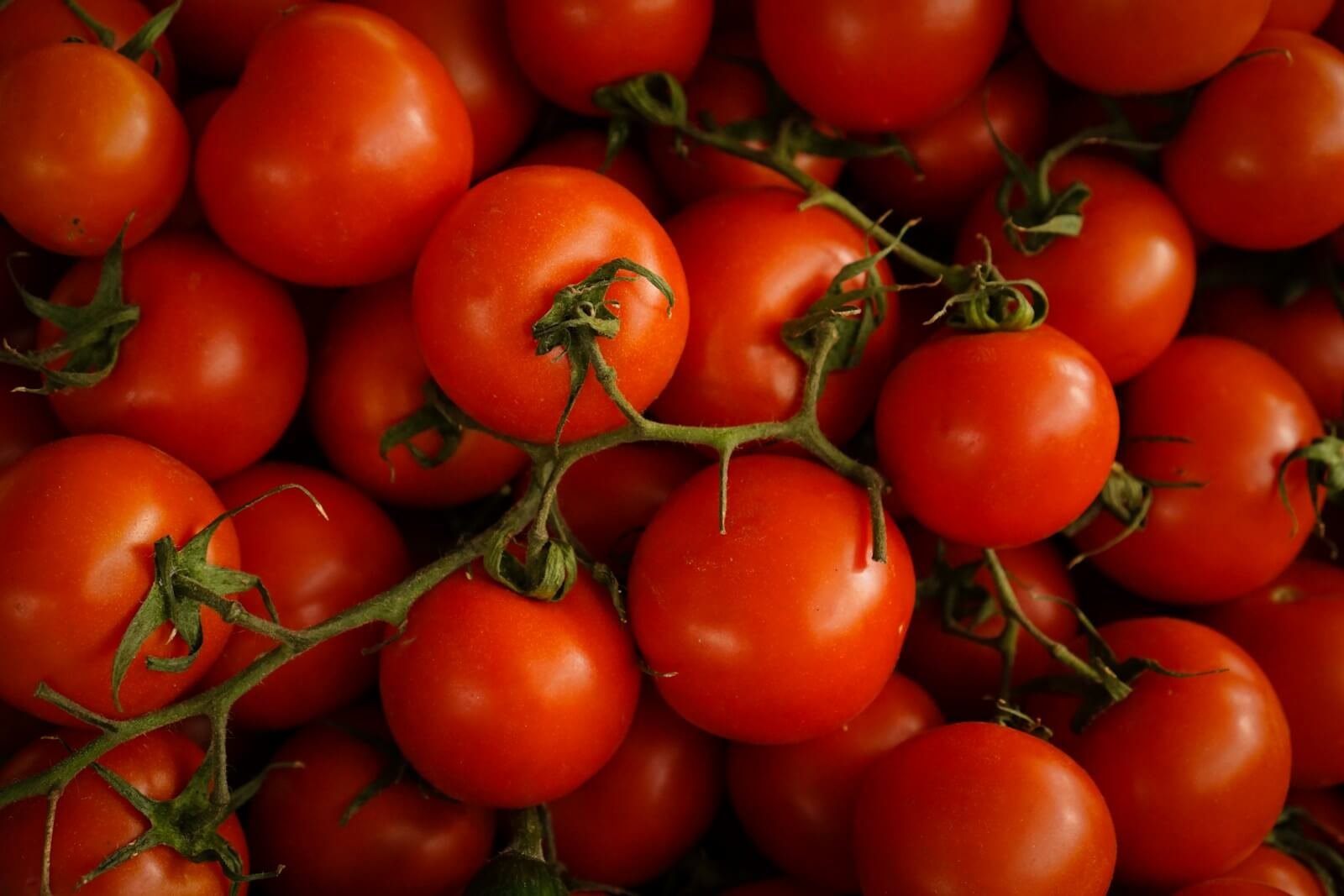Not everything that humans eat can be given to a dog. Do you know which foods are poisonous for your corgi and which are safe?

AUTHOR
Editorial Team
CATEGORY
Food & Nutrition
POSTED ON
20 December 2024
When your cute corgi sits by your side at the table and begs you to give him titbits of your own meals, you might feel too tempted to oblige. Before you do that, though, keep in mind that there are some human foods that are toxic to dogs. If you are not careful what you feed your pooch, you could make him sick or even worse – endanger his life.
What Foods Are Toxic to Dogs?
Here is a detailed list of foods and substances that are toxic to corgis and other dogs, along with the specific health risks they pose and symptoms to watch for. If you suspect that your dog might have eaten any of these, talk to a vet immediately.
Apple (seeds)
- Toxic Effects: The seeds contain cyanogenic glycosides, which can result in cyanide poisoning.
Apricot (seed pit)
- Toxic Effects: The seed pit contains cyanogenic glycosides, which can cause cyanide poisoning.
Avocado
- Toxic Effects: Contains a toxic element called persin, which can damage your corgi’s heart, lungs, and other tissues.
- Risks: Can cause an upset stomach, vomiting, or even pancreatitis.
- Additional Risk: The seed pit is also toxic. If swallowed, it can become lodged in the intestinal tract and cause a blockage requiring surgery.
- Warning: Keep your dog away from guacamole, too.
Baby Food
- Toxic Effects: Some baby food contains onion powder, which is toxic to dogs.
- Risk: Feeding large amounts of baby food may result in nutritional deficiencies.
Cooked Bones
- Toxic Effects: Cooked bones can become brittle and splinter, causing choking or ruptures in the digestive tract.
- Risks: Turkey and chicken legs, ham, pork chops, and veal bones are particularly dangerous.
- Safe Alternatives: Raw bones like chicken necks or beef knuckle bones are safer and help keep canine teeth healthy.
- Warning: Too many bones can cause constipation due to their high calcium content.
Bread Dough
- Toxic Effects: When ingested, the dough rises in the stomach, and alcohol is produced as it expands.
- Symptoms: Abdominal pain, bloat, vomiting, disorientation, and depression. A small amount can cause significant problems as the dough expands.
Broccoli
- Toxic Effects: Contains isothiocynate, which can cause stomach upset.
- Warning: Toxicity is likely only if it exceeds 10% of the dog’s total daily diet.
Caffeine (including coffee, tea, and soda)
- Toxic Effects: Caffeine acts as a stimulant and accelerates heart rate to dangerous levels.
- Symptoms: Seizures, and in some cases, death.
Candy (sugarless with xylitol)
- Toxic Effects: Xylitol can cause severe liver damage and death.
- Warning: Some vets may not be familiar with xylitol poisoning, so immediate veterinary care is essential.
Cat Food
- Risk: Cat food is too high in protein and fats, and is not balanced for a dog’s nutritional needs.
Cherries (seed pit)
- Toxic Effects: The seed pit contains cyanogenic glycosides, which can cause cyanide poisoning.
Chocolate
- Toxic Effects: Contains theobromine, a cardiac stimulant and diuretic.
- Symptoms: Vomiting, diarrhea, tremors, hyperactivity, irregular heartbeat, and seizures.
- Risk: Dark chocolate and cocoa powder are the most toxic; even a small amount can be lethal for small dogs. A medium to large dog may survive ingestion of small quantities, but it can be fatal for smaller dogs.
- Quantity for Danger:
- Milk chocolate: 1 ounce per pound of body weight.
- Semi-sweet chocolate: 1 ounce per 3 pounds of body weight.
- Baker’s chocolate: 1 ounce per 9 pounds of body weight.
Citrus Oil Extracts
- Toxic Effects: Known to cause vomiting.
Corn Cobs
- Toxic Effects: Corn cobs can cause partial or complete intestinal obstruction, which may be fatal.
- Warning: Never allow dogs to access corn cobs.
Dairy Products
- Toxic Effects: Most dogs are lactose intolerant, which leads to poor digestion of dairy.
- Symptoms: Intestinal gas (flatulence), foul-smelling diarrhea.
- Caution: Small amounts of cheese or plain yogurt may be tolerated, but most dairy should be avoided.
Eggs (Raw)
- Toxic Effects: Raw egg whites contain avidin, which can deplete biotin and lead to deficiency.
- Symptoms: Hair loss, weakness, growth retardation, and skeletal deformities.
- Additional Risk: Raw eggs can also be contaminated with bacteria like salmonella.
Grapes or Raisins
- Toxic Effects: Can cause kidney failure, even in small quantities.
- Symptoms: Vomiting, diarrhea, severe kidney failure, and possible death.
- Treatment: Veterinary intervention is required, including vomiting induction, stomach pumping, and fluid therapy.
Hops
- Toxic Effects: Spent hops, used in brewing beer, can lead to elevated body temperature, rapid heartbeat, and muscle tremors.
- Symptoms: Can cause severe symptoms and even death.
Liver
- Toxic Effects: Large amounts of liver can lead to vitamin A toxicity, causing bone problems.
- Symptoms: Long-term consumption can cause severe bone issues, weight loss, anorexia, and in severe cases, death.
Mouldy or Spoiled Foods
- Toxic Effects: Molds produce toxins like Penicillium or tremorgenic mycotoxins, which cause severe tremors and seizures.
- Symptoms: Vomiting, diarrhea, seizures, and shock.
- Warning: Avoid feeding moldy or spoiled food to your dog, and keep them away from garbage.
Mushrooms
- Toxic Effects: Certain mushrooms, especially Amanita species, can cause severe liver damage and neurological issues.
- Treatment: Induce vomiting, administer activated charcoal, and provide supportive care for liver disease.
Nutmeg
- Toxic Effects: Nutmeg can cause hallucinations and toxicity, leading to tremors, seizures, and in some cases, death.
- Symptoms: Vomiting, confusion, and potentially fatal reactions in large doses.
Macadamia Nuts
- Toxic Effects: Unknown toxic compound causes elevated body temperature, tremors, and muscle weakness or paralysis of the hindquarters.
- Symptoms: Difficulty standing, panting, swollen limbs, and pain upon limb manipulation.
- Warning: Symptoms are generally reversible but can cause distress.
Nuts (General)
- Risk: High phosphorus content in nuts can lead to bladder stones.
- Caution: Avoid giving your dog nuts in general.
Onions (Raw, Cooked, or Powdered)
- Toxic Effects: Contains thiosulphate, which causes hemolytic anemia by breaking down red blood cells.
- Symptoms: Vomiting, diarrhea, weakness, dark-colored urine, shortness of breath, elevated heart rate, and confusion.
- Risk: Poisoning may occur with large amounts of onion or from repeated consumption of smaller amounts.
Peaches (Seed Pit)
- Toxic Effects: The seed pit contains cyanogenic glycosides, which can cause cyanide poisoning.
Pears (Seeds)
- Toxic Effects: The seeds contain cyanogenic glycosides, which can cause cyanide poisoning.
Plums (Seed Pit)
- Toxic Effects: The seed pit contains cyanogenic glycosides, which can cause cyanide poisoning.
Potatoes (Green Sprouts and Skins)
- Toxic Effects: Contain solanine, a toxic compound that can cause gastrointestinal distress and nervous system damage.
- Warning: Raw potatoes or green sprouts should be avoided. Cooked potatoes are safe for dogs in moderation.
Rich Fatty Foods
- Toxic Effects: Rich fatty foods can trigger pancreatitis, especially in dogs prone to it.
- Examples: Turkey skin, bacon, sausages, hot dogs, fruit cake, plum pudding, and deep-fried foods.
- Symptoms of Pancreatitis: Vomiting, diarrhea, abdominal pain (hunched posture), and rapid deterioration in condition.
- Caution: Small dogs and energetic breeds are particularly at risk.
Salmon (Raw)
- Toxic Effects: Commonly called “Salmon Poisoning Disease” (SPD), this occurs when a dog consumes raw salmon infected with Neorickettsia helminthoeca, which is carried by a parasite (a flatworm or fluke).
- Risk: The parasite does not directly affect the fish, but when a dog eats the infected salmon, it becomes exposed.
- Symptoms: Vomiting, diarrhea, and abdominal pain. The dog may become very sick quickly and look hunched. This often calls for intensive fluid and antibiotic therapy.
Salt
- Toxic Effects: Salt can be dangerous to dogs because it can lead to salt poisoning, which occurs when a dog consumes too much sodium. Dogs need a small amount of salt in their diet, but excessive intake can overwhelm their system.
- Risks: Iodized salt and salty foods can cause stomach issues and pancreatitis. Large breeds may gulp too much water after salty foods, leading to bloat. Bloat is a life-threatening condition where the stomach fills with gas and twists. Excessive salt consumption can lead to dehydration, electrolyte imbalance, kidney damage, vomiting, diarrhea, neurological symptoms (confusion, disorientation, seizures), muscle tremors, heart issues, and organ failure.
- Symptoms of bloating: Sudden distended abdomen. Difficulty breathing or pain. Requires immediate emergency treatment.
Tomatoes and Tomato Plants
- Risks: Contain atropine, which can cause toxicity. Highest concentration of atropine in leaves and stems, followed by unripe tomatoes.
- Symptoms of atropine poisoning: Dilated pupils. Tremors and irregular heartbeat. General signs of poisoning like vomiting or lethargy.
Table Scraps
- Risks: Not nutritionally balanced for dogs. Should not exceed 10% of the diet. Fatty meat trimmings should be discarded, as should all cooked bones.
Tobacco Products
- Risks: Cigarettes, cigars, pipe tobacco, nicotine patches, nicotine gum, and chewing tobacco are highly toxic.
- Symptoms of nicotine poisoning: Early signs (within 1 hour): Hyperactivity, excessive salivation, panting, vomiting, diarrhea. Advanced signs: Muscle weakness, twitching, collapse, coma, increased heart rate, cardiac arrest. Can be fatal if not treated immediately.
Alcohol
- Toxic Effects: Ingestion of alcohol can lead to disorientation, sickness, urination problems, coma, or even death due to alcohol poisoning.
Other Things That Are Toxic To Dogs
Food Preparation Items
If your dog chews on leftover bits of things like:
- Aluminium foil or pans
- Candy wrappers
- Paper plates and cups
- Plastic forks, spoons, knives
- Plastic beverage rings from six-packs
- Roasting bags
- Turkey skewers or lacing
- Plastic wrap aka film foil
They might swallow pieces that can lead to discomfort, like abdominal pain, intestinal blockages, or even internal bleeding. In some cases, it could be fatal. There’s also a real risk of choking or suffocation. To keep your dog safe, always dispose of these items in a way that they can’t get to them.
While it’s hard to resist those big, begging eyes from your corgi, it’s important to remember that many human foods can pose serious risks to their health. What may seem like a harmless treat to us can lead to anything from an upset stomach to life-threatening complications for your furry friend. Always be cautious and stick to corgi-friendly snacks, and if you’re ever in doubt, consult your vet. Keeping your corgi safe from these toxic foods ensures that they stay happy, healthy, and by your side for years to come!

